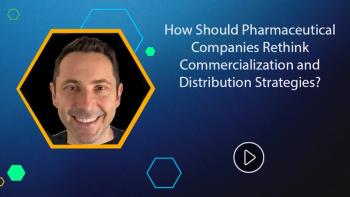
The Evolution of Regulatory Operations
Michael Gordon charts the evolution of regulatory operations and suggests how it can spearhead opportunities for innovation in pharma data.
Michael Gordon charts the evolution of regulatory operations and suggests how it can spearhead opportunities for innovation in pharma data through an industry collaborative titled the HeRO Forum.
Two decades of growth and evolution have put regulatory operations (reg ops) on the map as a pivotal entity in global life sciences companies, leading cross-functional collaboration to deliver R&D’s primary output – product data – to R&D’s pivotal customer (health authorities globally) while keeping up with an ever expanding set of complex regulations to support patient benefit and commercial goals.
However, this new reality is at odds with lingering perceptions that reg ops is a necessary but basic R&D function, packaging drug submissions and getting them out of the door, its highest ambition to be a well-run factory.
Submission of drugs for approval by global health authorities is the key process through which companies comply with regulations to help assure that safe, effective drugs are provided to patients.
In the space of two decades, reg ops has gone from three people and a photocopier to the key function that curates R&D’s data, submits information as a coherent whole to health authorities and maintains licenses on the market, enabling stakeholders in manufacturing and commercial divisions also to achieve their goals. The modern reg ops function has become a force for strategic advantage. As the industry is being held to increasingly high standards designed to improve patient safety and efficacy, it is being asked to take a greater enabling role.
Reg ops was born out of the need for dedicated resources to keep up to date with the ever changing complexity of submission regulations, the increasing volume, variety and velocity of product information, and to develop the necessary skills needed to manage new digital approaches, both in gathering data and crafting complex electronic submissions. Reg ops departments now go by many different names - submissions operations support, regulatory delivery & enablement, global regulatory platforms and delivery, etc. All these organizations, however, are bound by a common core set of business critical responsibilities which holds true in any regulated biopharmaceutical company with products licensed in multiple markets.
Part of the story behind this widening of responsibility is that reg ops has, in many companies, taken the lead in ordering and structuring data from partner functions (e.g. Clinical and Quality) to be in line with the requirements from health authorities. It has essentially moved from a basic model of compiling documents, to a more advanced model of structuring data and content.
Alongside this, many functions have been embedding the capability for broader planning and control of what has become a more complex logistical activity. Common sub-functions created to this end include project management, capacity management and portfolio management for submissions.
The role has also extended to earlier in the value chain, and closer to project teams, where it has become common for a representative from reg ops to have a seat in the global development team, inputting into discussions and ensuring an ‘end in mind’ approach is taken throughout.
Delivery of submissions from planning through to archive remains reg ops’ bread and butter. Modern reg ops, however, provides value beyond these important operational activities by helping trigger and drive decisions through analytics and enabling the process of converting pharma’s data into a coherent whole. This value is expressed in three dimensions: enablement, expertise and information curation.
The submission manager has become a key role in modern reg ops organizations, a central point for the coordination of submissions, guiding best practice and understanding how logistically to structure and present functions’ information for inclusion in submission. Beyond the original licensing submission, the project management and planning continues and becomes a steady-state foundation for the license maintenance phase. Examples include past learnings on submissions in particular therapeutic areas, and best practice in submitting to emerging markets’ health authorities. Here there is potential for powerful analytics to be useful, made possible by a robust Master Data Management system storing historic data on queries and commitments. Whereas an experienced regulatory expert may have perhaps 10 past submissions to actively draw from, a complete system will have thousands.
Regulatory is concerned principally with compliance, having the responsibility for inspectable data. Underlying this is the need for reliable systems tracking document creation, submission, approval and archiving. Data from other functions which contribute to a submission are not owned by reg ops, but a good reg ops group curates that data into structured information, and wherever possible, exercises a duty of care to make sure accurate, quality submissions are sent to health authorities. Beyond the creation of submissions is the maintenance of accurate and up-to-date systems tracking metadata, for internal use by stakeholders at all levels of the company.
The health authority - the primary customer
Reg ops can sometimes be viewed as a service provider to the internal partner functions it interacts with, however, its primary customer should be seen as the health authority. The product that goes out the door of an innovative pharma company’s R&D Division is the drug submission that goes from reg ops to the health authority.
Service-Oriented Mind-set Theory(1) states that for any service provider to create value, it must follow four steps:
1. Identify its primary customer
2. Understand service delivery in the context of co-creation with its customer
3. Characterize the customer’s needs
4. Collaborate internally to achieve good external customer service.
The idea behind these steps is to help any given service provider recognize the final purpose of its service and shape itself to match the needs of its customer. External co-creation with the customer means bringing both sides of the service relationship closer together by allowing for a dialogue between the customer and the service provider. In the case of pharma this is particularly relevant as both the pharma company and the health authority are working towards the same goal – a well-made drug balancing safety and efficacy.
The second element is the internal collaboration necessary to unite the various parts of the organization that need to come together to deliver the product effectively and efficiently. Efficiency is in the interest of the health authority to receive the right information, formatted correctly.
Planners, integrators and solvers
The new reg ops personality has shed the ‘hero complex’ and shifted from an image of firefighting to professionalism. Beyond requiring people with rigorous attention to detail and a determined work ethic, those building the strongest reg ops functions have a team of planners, solvers and integrators.
The planner ensures rigorous planning and project management in providing a clear framework internally and to partner functions to maintain streamlined submission timelines. An effective reg ops planner has a backbone and is able to challenge colleagues in the way things are done, to ensure that plans are followed and timelines met.
The solver works through ambiguities and business problems, innovating and improvising to meet current challenges in information management, and finding ways of making information drive decisions. The solver will also be in a position to be instrumental in some of pharma’s latest initiatives for data standardization and integration, for example the Identification of Medicinal Products (IDMP), using strong data management to enhance patient benefit globally.
The integrator: Being at the heart of cross-functional activity, reg ops needs to be able to facilitate and negotiate, across different geographies, across different functions and divisions (pharmacovigilance, clinical, manufacturing, sales and marketing) enabling the business to meet the requirements of regulators in varied markets. A multi-disciplinary edge to reg ops people helps in this ability for integration.
Potential to lead the pharmaceutical data breakthrough
A biopharmaceutical company’s key currency is data, and submission to health authorities is the culmination of the data collection and analysis exercise. Despite the heavily data-driven nature of biopharmaceutical business, current data systems, management and governance, in large and small companies alike, need improvement. Functional systems and data are often siloed and lack a single source of truth. Data are often unreliable, outdated or duplicated, and systems are complex and poorly integrated,
Reg ops is the only function with end-to-end process visibility, interacting with each one of the business units in coordination. This makes is a natural curator of data and gives is an opportunity to lead in providing answers in this space. Being a natural point of convergence of disparate data sources and as the function that produces a definitive and complete dataset to a primary customer – the regulators – reg ops is in a good position to lead an evolution towards a holistic Master Data Management which eventually will become a Google-type searchable system for all of a pharma company’s data.
Reg ops as a function is one of the most forward-thinking in industry ambitions to standardize and harmonize data across companies. A key example is the Identification of Medicinal Products (IDMP) initiative. As well as creating an essential reference database for the industry, the work being done in these areas is being be used to drive a transformation within pharma companies to develop Master Data Management systems starting from regulatory. A longer term goal will be for systems to eventually be linked with health authorities directly, enabling transparency and an even greater level of data streamlining and provider-customer alignment.
Conclusion
Reg ops has become a critical entity helping biopharmaceutical companies and health authorities make sound, timely decisions to bring drugs to patients. Creating both commercial and patient value through enablement, expertise and data curation, it should be a priority area for investment and recruitment of a varied team of dynamic planners, integrators and solvers. Reg ops’ key future role is in helping bring about a holistic change in cross-company data standards and governance, and leading a breakthrough to a more data centric R&D.
Reference
1. J. Gittell (2002). Relationships between Service Providers and Their Impact on Customers. Journal of Service Research
Special thanks for this article are in order to the efforts of Gavin Outteridge (Kinapse), Marc Gabriel (Kinapse), Heather Bush (Abbvie), Karen Towns (Pfizer), Eckart Schwarz (GSK), Tobias Massa (Sanofi), Tony Waclawski (BMS), Carolyn Smith-Barrett (Janssen), Bob Class (Janssen), Tracy Baldwin (Takeda), Ashley Burt (Takeda), Susan Uptain (Shire), Gunilla Bergfelt (AstraZeneca), Chris Lee (Merck) and others within Industry for their continued contributions to the improvement of Regulatory Affairs.
Newsletter
Lead with insight with the Pharmaceutical Executive newsletter, featuring strategic analysis, leadership trends, and market intelligence for biopharma decision-makers.




